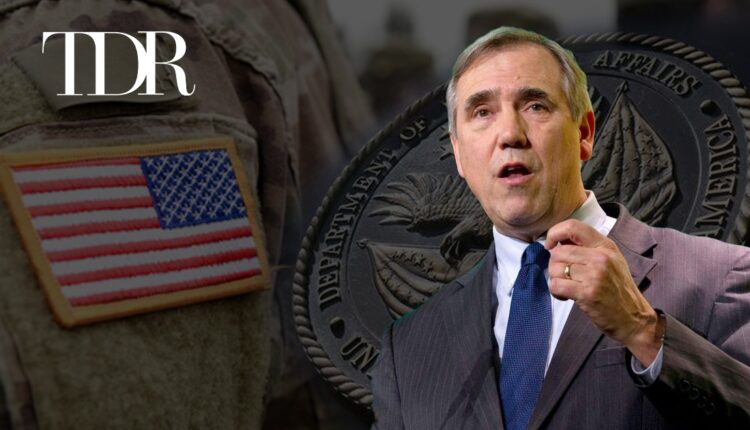
Senator Merkley Advocates for Veterans’ Medical Marijuana Access
The TDR Three Key Takeaways regarding Senator Merkley and Veterans’ Medical Marijuana Access:
- Senator Jeff Merkley, alongside other U.S. senators, is pushing for the Department of Veterans Affairs (VA) to enhance access to medical cannabis for veterans.
- Rescheduling cannabis to Schedule III is crucial in addressing the opioid crisis among veterans.
- The Senate committee approval of an amendment allowing VA doctors to discuss and recommend medical cannabis to patients in legal states is a step in the right direction.
Senator Jeff Merkley, alongside other U.S. senators, is pushing for the Department of Veterans Affairs (VA) to enhance access to medical cannabis for veterans and establish a VA-approved standard of care. The DEA’s recommendation to reschedule cannabis from Schedule I to Schedule III underscores its medical benefits, potentially expanding treatment options for veterans.
The primary call to action from Senator Jeff Merkley centers on urging the VA to align with states’ medical cannabis programs. Currently, veterans in states with legal medical cannabis lack the same access as non-veterans, forcing them to seek out new medical systems outside the VA to discuss and obtain medical cannabis. This disparity in access is a pressing issue that requires immediate attention.
One of the significant benefits of rescheduling cannabis to Schedule III is its potential role in pain management, which is crucial in addressing the opioid crisis among veterans. Veterans are disproportionately affected by opioid overdoses. Despite reductions in opioid prescriptions by VA facilities, overdose and suicide rates among veterans have not seen a corresponding decline. Medical cannabis presents a safer alternative with fewer addictive properties compared to opioids, making it a viable option for pain management. As the Senators noted, “The DEA’s recommendation to reschedule cannabis to Schedule III also has the potential to decrease the prescription and use of more dangerous pain relief methods. Studies have shown that cannabis has significantly fewer addictive properties and is much less likely to result in dependency than other forms of pain relief, such as opioids.”
The legislative and policy support for medical cannabis access for veterans is growing. The Senate committee approval of an amendment allowing VA doctors to discuss and recommend medical cannabis to patients in legal states is a step in the right direction. This step, supported by various legislative efforts such as the Veterans Equal Access Act, emphasizes the need for comprehensive research and access to medical cannabis for veterans.
Educational initiatives are essential to the proposed standard of care. VA providers need education on the endocannabinoid system, the benefits and risks of medical cannabis, and the rights of state-licensed physicians under the Medical Marijuana and Cannabidiol Research Act of 2022. This education will enable VA providers to offer informed guidance to veterans regarding medical cannabis use.
Clear guidelines for Veterans Health Administration (VHA) providers are necessary. These guidelines should include discussing, recommending, and assisting patients in enrolling in state-legal medical cannabis programs. Additionally, updates to the VHA’s electronic medical record system are needed to differentiate between “medical cannabis use” and “cannabis use disorder,” ensuring accurate and helpful medical records.
Senator Jeff Merkley and his colleagues emphasize the VA’s duty to provide the highest quality care for veterans, which includes legal access to all federally-approved treatment options, including medical cannabis. The senators concluded, “We strongly urge the VA to recognize the established benefits of medical cannabis and to fulfill its duty to our nation’s heroes by ensuring the best quality of care through VHA. This must include facilitating legal access to medical cannabis for veterans by developing a VA-approved standard of care and issuing clear guidance allowing and preparing VHA providers to discuss, recommend, and assist patients in qualifying for enrollment in state-legal medical cannabis programs following cannabis’ official rescheduling. Our nation’s heroes deserve access to all federally-legal treatment options to meet their healthcare needs.”



